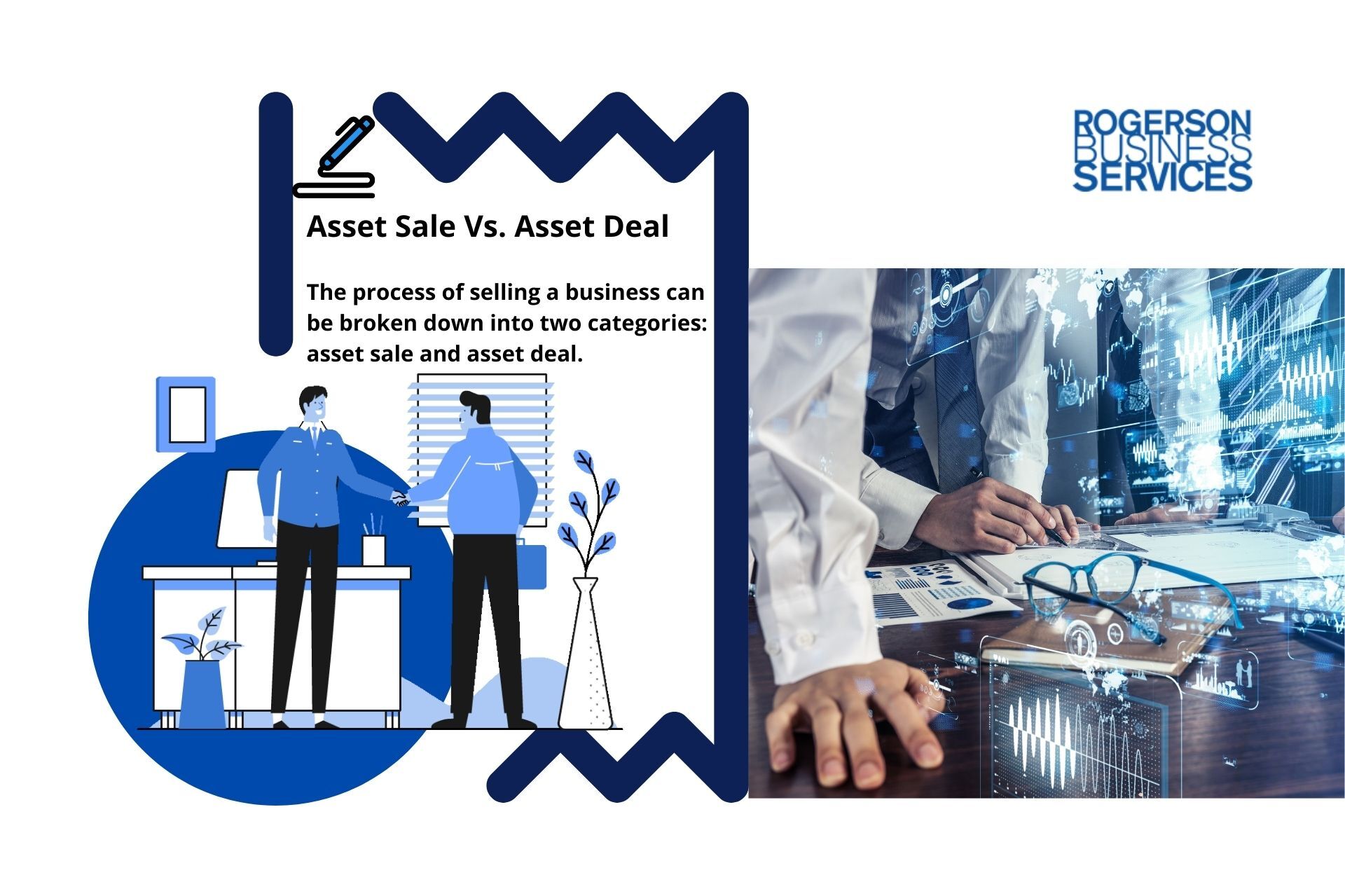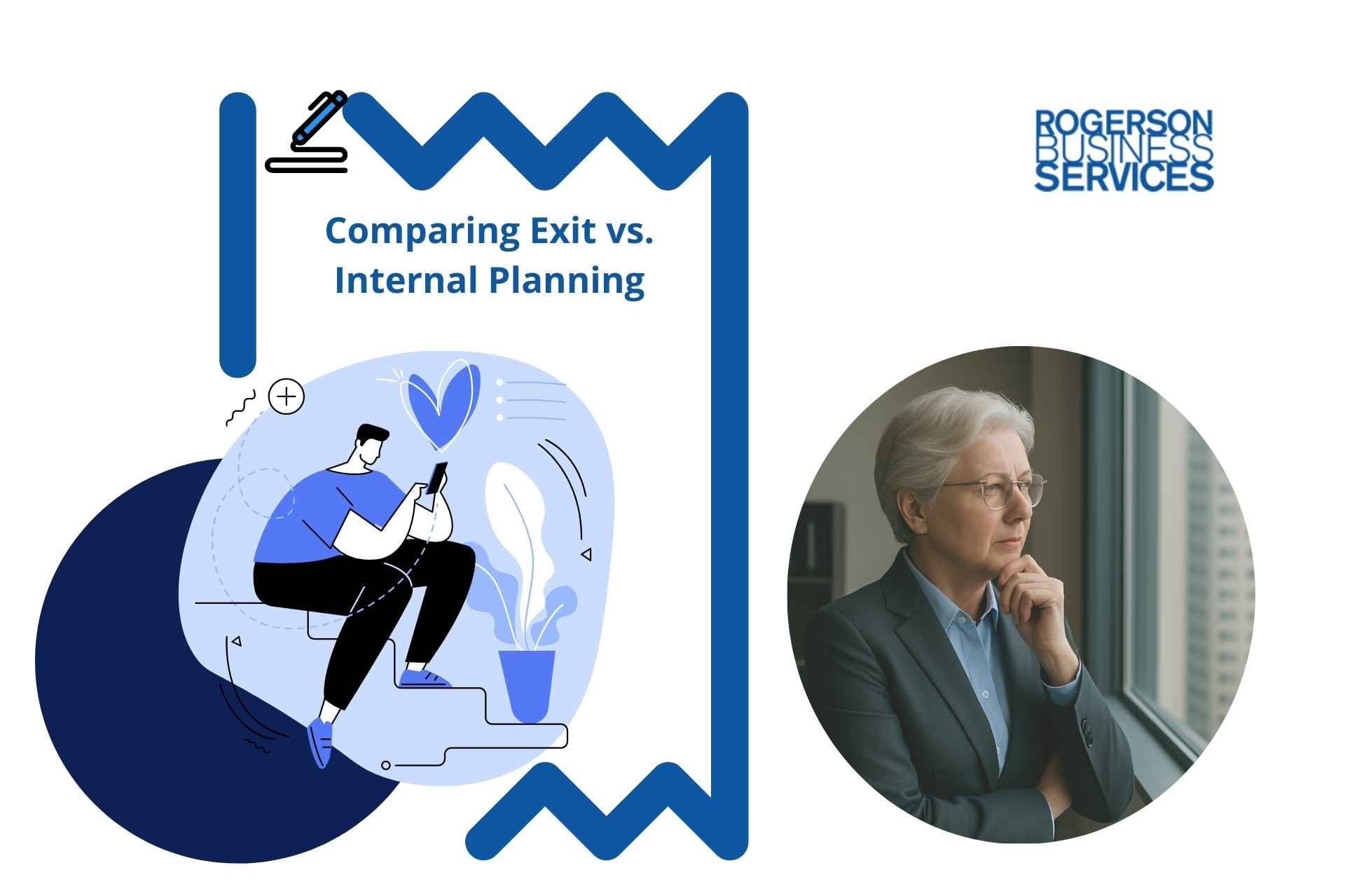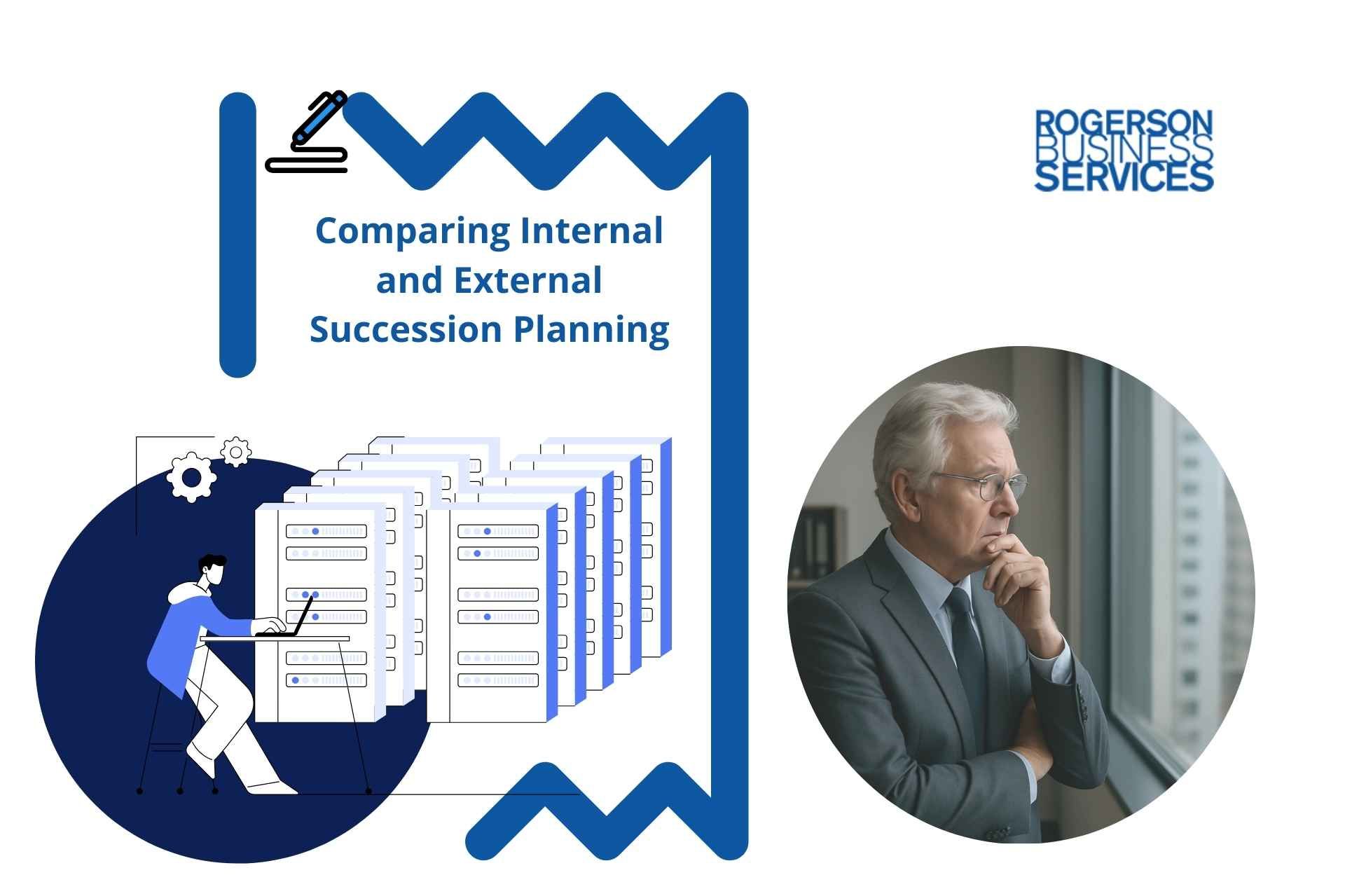Asset Sale Vs. Asset Deal: What's the Difference | Selling a Business
Asset Sale Vs. Asset Deal
The process of selling a business can be broken down into two categories: asset sale and asset deal.

Asset sale vs asset deal: there are some key differences between them. We'll break down those differences to help you decide the best option for your lower middle market business in California.
Read on to help you with the best option for your company.
What Is an Asset Sale?
An asset sale is a type of M&A deal that involves the sale of a company's assets rather than the business itself. The buyer in an asset sale acquires only the physical assets of the business and none of the liabilities. This type of sale can be beneficial for businesses with high liabilities or experiencing financial difficulties.
For example, a lower middle market company with a large debt may be able to sell its assets to pay off creditors and avoid bankruptcy. However, businesses should be aware of tax implications associated with an asset sale.
When a business sells assets, it may be required to pay capital gains taxes on any profit from the sale. Therefore, businesses should consult an M&A advisor to find out all the information about taxes on selling a business in California before entering an asset sale agreement.
What Are the Benefits?
1) Before the transaction, the corporation had no legal obligations.
This means the company does not have to worry about any potential liabilities associated with the sold assets.
For example, if environmental concerns relate to the assets, the company will not be held responsible for these once the sale is complete.
Additionally, if you sell the assets at a loss, the company will not be liable for this loss. As a result, asset sales can provide businesses with significant legal protections.
2)If the original corporate entity included any cash, the seller would keep it.
This can be beneficial because it provides the seller with immediate liquidity, which can be used to reinvest in the business or pay down debt.
In addition, it allows the seller to retain control of the business and its assets. Regaining control can be particularly advantageous if the business is doing well and the seller does not want to sell shares in the company or lose control of the business.
3) The sale can help to simplify the company's business. This can make it easier to manage and improve efficiency.
A good example of this is when a company sells off its non-core businesses to focus on its core business.
This can help the lower middle market company to become more lean and efficient, and ultimately improve its bottom line.
4) The sale can help to improve shareholder value. This can lead to greater shareholder confidence and stability.
For example, if a company is carrying a lot of debt, selling assets can help to pay down that debt and improve the company's financial health.
This can in turn lead to higher stock prices and increased investor confidence. Thus, while there may be some short-term costs associated with asset sales, the long-term benefits can be significant for both the company and its shareholders.
5) The sale can help to attract new investors. This can provide additional capital for growth and expansion.
For example, a company looking to expand into new markets may sell some of its properties to raise the funds needed for research and development. By taking this approach, the company can not only attract new investors but also position itself for future success.
When is It Appropriate to Use Asset Sale?
When is it appropriate to use asset sale? For example, an asset sale may be the best option when you are no longer using an asset and it is taking up valuable space.
This type of sale is also appropriate when you need to generate quick cash flow or want to invest the proceeds more strategically.
However, it's essential to remember that an asset sale will often result in a lower sales price than if you were to sell the business as a whole. As such, it's essential to weigh all your options and consult a professional sell-side advisor before making a decision.
What Is an Asset Deal?
An asset deal is a business transaction in which one company sells all or part of its assets to another company.
The assets involved in the definitive agreement can include tangible assets such as property, equipment, and inventory and intangible assets such as patents, copyrights, and trademarks. Asset deals can be attractive for lower mid-market businesses looking to divest themselves of certain assets or expand their operations.
There are a few things to keep in mind if you're considering an asset deal for your business:
- Make sure you clearly understand the assets involved in the deal. This includes their value and how they fit into your overall business operations.
- Consider the tax implications of the deal. Asset deals can have significant tax consequences, so it's essential to consult with a tax advisor before proceeding.
- Make sure the other party is reputable and has the financial resources to follow through on the deal. This includes doing your due diligence on the company and its financials.
- Have a clear understanding of the terms of the deal and what each party is responsible for. Understanding the terms of the agreement will help avoid any misunderstandings or disputes later.
- Get everything in writing. This includes the deal structure and any agreements between the parties involved. Having everything in writing will help protect your interests and ensure everyone is on the same page.
What Are the Benefits?
1) A seller may want to sell a business to retire, but may not want to sell the assets of the business to avoid paying California capital gains taxes.
In this case, an asset deal would be beneficial because the seller would retain control over the business and continue to receive income from it.
2) Planning and negotiating all the contract criteria may take longer for an asset deal. However, after all the concerns have been resolved, closing and finishing the purchase is a formality.
3) There are plenty of tax advantages a seller can secure as part of a tax plan.
One benefit of an asset deal is the potential for lower taxes on intangible assets like goodwill. Goodwill is taxed at a capital gains rate.
4) Because the parties are typically not obligated to abide by state and federal securities rules and regulations, buying a business through an asset acquisition is less complicated from a securities law standpoint.
5) Another example would be a seller who wants to exit a business but does not want to liquidate its assets to pay creditors.
In this case, an asset deal would be beneficial because it would allow the seller to retain control over the business and exit without having to pay creditors.
When Is It Appropriate to Use an Asset Deal?
Many factors must be considered when selling a lower middle market business to get the best return on investment. One critical decision is whether to sell the business as an asset deal.
Generally, an asset deal is more appropriate when the value of the assets exceeds the value of the shares or when there are concerns about potential liabilities.
For example, if the business being sold has significant real estate holdings, an asset deal would likely be more advantageous for the seller.
How Can Business Owners Decide Which Option Is Best for Them?
When baby boomer business owners are thinking “I need to sell my business,” deciding between an asset sale vs. an asset deal can be a difficult decision. There are a few factors to consider, such as the size of the business and the overall market conditions.
For middle-market businesses, asset sales are typically the best option. This is because asset sales allow the owner to sell the business as a whole rather than having to piece it out.
This can help to get a higher price for the business, as well as avoid the hassle of having to negotiate with multiple buyers.
However, in some cases, an asset deal may be more advantageous. For example, if the market is weak or there are few potential buyers, an asset deal could help to get the business sold more quickly.
Ultimately, it's essential to consult with a professional merger and acquisition advisor to determine which option is best for your specific situation.
Are you considering selling your business? Try deal structuring in Private Equity.
Final Take
If you are a retiring business owner looking to exit your lower middle market business in California, here are five tips to get you started:
1. Don't wait until the last minute to start planning your exit. The process of selling a lower middle market business can take a long time, so it's important to start early.
2. Have a clear idea of what you want to get out of the sale. Know your goals and what you're willing to negotiate.
3. Choose the right type of buyer. Not all buyers are created equal, so do your research and find the right one for your business.
4. Be prepared for a lot of due diligence. M&A buy-side due diligence is when buyers will want to know everything about your business, so be ready to provide documentation and answer questions.
5. Be flexible with the terms and conditions of the deal. It's important to be open to negotiation to get the best possible deal for your business.
Rogerson Business Services, also known as, California's lower middle market business broker is a sell-side M&A advisory firm that has closed hundreds of lower middle-market deals in California. We are dedicated to helping our clients maximize value and achieve their desired outcomes.
We have a deep understanding of the Californian market and an extensive network of buyers, which allows us to get the best possible price for our clients. We also provide comprehensive support throughout the entire process, from initial valuation to post-closing integration.
Our hands-on approach and commitment to our client's success set us apart from other firms in the industry. If you consider selling your lower middle market business, we would be honored to help you navigate the process and realize your goals.
If you have decided to value and then sell your lower middle market business or still not ready, get started here, or call toll-free
1-844-414-9600 and leave a voice message with your question and get it answered within 24 hours. The deal team is spearheaded by Andrew Rogerson, Certified M&A Advisor, he will personally review and understand your pain point/s and prioritize your inquiry with Rogerson Business Services, RBS Advisors.
This is part of hiring an M&A deal team tips to answer some FAQs about the deal structure & transaction series ->
Hey there! Can we send you a gift?
We just wanted to say hi and thanks for stopping by our little corner of the web. :) we'd love to offer you a cup of coffee/tea, but, alas, this is the Internet.
However, we think you'll love our email newsletter about building value and properly position your company before transition/exit your business ownership.
As a special welcome gift for subscribing, you'll also get our helping and educational guides, tips, tutorials, etc.. for free.
It's filled with the best practices for retiring serial business owners like Dan Gilbert, Larry Ellison, Warren Buffett, and many more.
Just sign up for our emails below.


